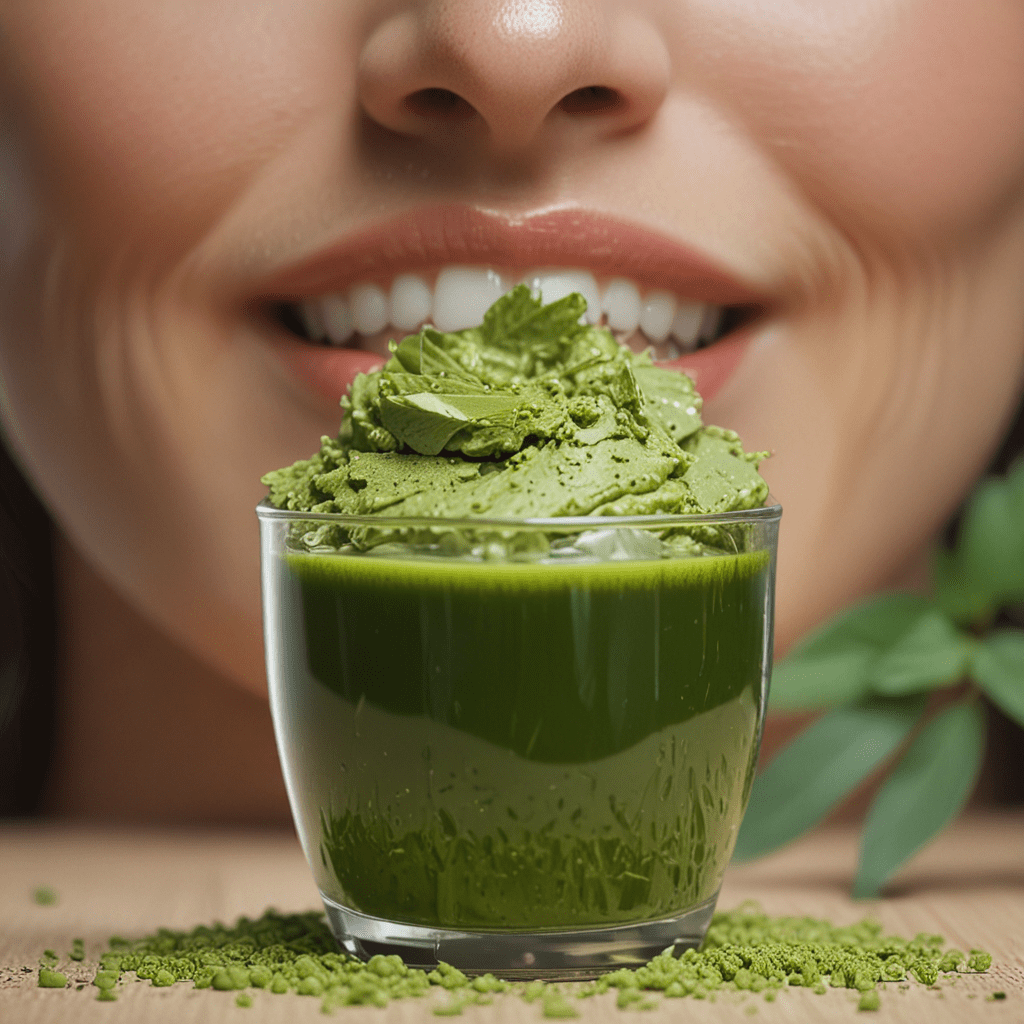
Matcha and Dental Health: Green Tea’s Effects on Oral Care
Introduction
Matcha, a vibrant green tea hailing from Japan, is renowned for its exceptional health benefits. Its unique properties offer an array of advantages for dental health, making it a valuable addition to your oral care regimen. This article delves into the scientific evidence supporting matcha's positive effects on oral health, exploring its antibacterial, fluoride-rich composition and its ability to combat cavities, gum disease, and bad breath.
1. Matcha: A Unique Green Tea
Matcha is distinguished from other green teas by its cultivation and processing methods. Unlike regular green tea, where leaves are steeped in water, matcha involves grinding the entire tea leaf into a fine powder. This process preserves the full spectrum of nutrients and antioxidants, resulting in a concentrated tea with exceptional health-promoting properties. Matcha's vibrant green hue and subtly sweet flavor are testaments to its high chlorophyll and nutrient content.
2. Dental Health Benefits of Matcha
Matcha's composition boasts a wealth of compounds that contribute to its dental health benefits:
6. Matcha’s Role in Enamel Strengthening
Matcha's fluoride and calcium content play a crucial role in strengthening tooth enamel, the protective outer layer of your teeth. Fluoride ions help remineralize the enamel, repairing microscopic damage and reducing the risk of cavities. Additionally, matcha's pH-balancing properties help neutralize acids in the mouth, preventing enamel erosion.
7. Incorporating Matcha into Your Oral Care Routine
To harness the dental benefits of matcha, consider incorporating it into your oral care routine:
8. Potential Side Effects of Matcha on Dental Health
While matcha generally benefits dental health, excessive consumption can have potential side effects:
9. Recommendations for Safe Matcha Consumption
To ensure safe and beneficial matcha consumption for dental health:
10. Conclusion: Matcha and Oral Health
Matcha's unique composition offers an array of benefits for dental health. Its antibacterial properties, fluoride content, and pH-balancing effects make it a valuable addition to your oral care regimen. By incorporating matcha into your routine through tea or toothpaste, you can enhance your oral health, reduce the risk of cavities and gum disease, and enjoy a refreshed and healthy smile.
FAQs:
Q: Is matcha good for my teeth?
A: Yes, matcha contains antibacterial catechins, fluoride, and chlorophyll, all of which contribute to good dental health.
Q: Can matcha whiten my teeth?
A: While matcha has some antibacterial properties, it does not have significant teeth-whitening effects.
Q: How can I incorporate matcha into my dental routine?
A: Drink one to two cups of matcha tea daily or use matcha-infused toothpaste to harness its dental benefits.

